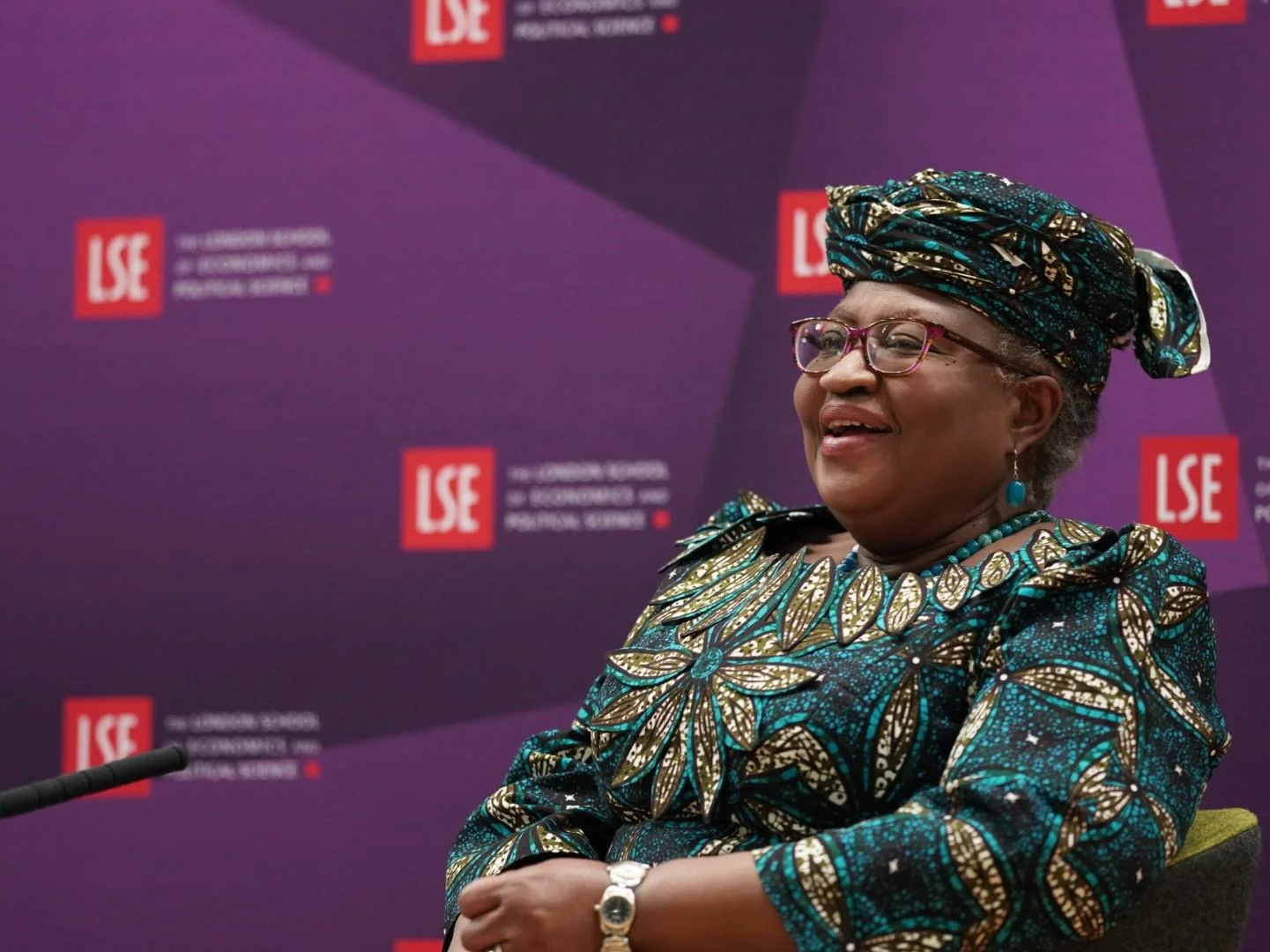Director-General of World Trade Organization visits LSE

Dr Ngozi Okonjo-Iweala, Director-General of the World Trade Organization, addressed students, staff and other audience members this week in an event chaired by Minouche Shafik, President and Vice Chancellor of LSE.
Shortly before the event began, Dr Okonjo-Iweala was presented with an honorary doctorate in Economics by Baroness Shafik, who cited her pioneering work in gender and international development policy and her historic appointment to WTO Director-General.
In her following address, Dr Okonjo-Iweala described LSE’s various links with the WTO. She alluded to research on international trade by LSE academics including Dr Mona Paulsen (Department of Law), Dr Thomas Sampson, and Professor Silvana Tenreyo (Department of Economics), as well as to LSE alumni in the WTO’s ranks. Reiterating her belief that LSE would continue to be "the world’s leading source of ideas and research to address real-world problems of economics and politics well into the next century", she also described her personal connections to the institution.
Dr Okonjo-Iweala went on to speak about her achievements as Nigerian Finance Minister, the WTO’s new focus on sustainability, and the organisation’s core values. On the significance of targeted, effective reform in the face of global problems, she told the audience: "in a fast-changing world that is not only dealing with multiple crises – health, energy, food, climate – but also undergoing rapid technological change, our rulebook needs to be updated to deal with 21st century challenges." She discussed the reframing of WTO goals in today’s context of inequality and negative perceptions of international trade.
"Reforming the WTO is also about inclusion – using trade to include those people and geographies left out of the recent wave of globalisation. [. . .] We want to talk about ‘re-globalisation’, a reimagined globalisation that includes people who have been left out".
Dr Okonjo-Iweala and Baroness Shafik discussed international trade and its humanitarian aspects, reducing frictions in multilateral trade negotiations, fiscal constraints in developing countries, and diplomacy.
In response to a question about the African Continental Free Trade Area, Dr Okonjo-Iweala described it as a "fantastic proposition" for Africa’s future prosperity and industrialisation. She highlighted adding value to products and enabling countries’ specialisation as vital aspects of intra-African trade.
Baroness Shafik also raised the problem of low growth and high debt in low-income economies in the context of food-insecurity, reduced foreign aid, and the COVID-19 pandemic. Dr Okonjo-Iweala responded optimistically: "a way out can be seen in restructuring debt and outward cancellation for some". Emphasising richer countries’ contributions to climate change, she stressed the importance of international support and inclusive global supply chains. The discussion concluded with the diminished state of international diplomacy today, and the need for multilateral organisations and strategic cooperation.
The interactive Q&A with the audience introduced further areas of discussion, from career advice for young women to her own greatest obstacles as a woman of colour in the field of international trade and development.
For a full recording of the event, please visit LSE's YouTube Channel.